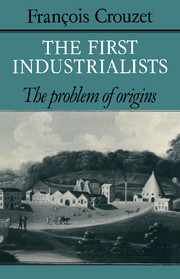4 - Building up a Sample
Published online by Cambridge University Press: 25 October 2011
Summary
The preceding chapter had as its title ‘The Myth of the Self-Made Man’, and made frequent reference to such a myth, because the idea that many, if not most, industrialists were self-made men, after its success during the nineteenth century, was exploded by twentieth-century economic and social historians – though some of the early ones clung to it. Kind-hearted Elie Halévy could not believe that educated and well-to-do men could treat their workpeople with the harshness displayed by many early industrialists; accordingly he wrote of Manchester in the 1790s:
The founders of factories were almost all men of humble origin – yeomen or farmers of the neighbourhood, small shopkeepers or artisans, sometimes ordinary workmen. For wealth, while it civilizes, softens and enervates. A man who was not of the common people would not have had sufficient energy – brutality, if you prefer it – to triumph over the violent resistance opposed by the mass of the local population, to the execution of his designs.
The subsequent consensus is well expressed by H. Perkin:
It was a real myth, in that it had a sufficient basis in fact … to make it eminently plausible, while remaining utterly fictitious as a sociological explanation of the entrepreneur as a class. The number of industrialists even in the Industrial Revolution who began without capital or connections of any kind was a minute fraction of the whole.
- Type
- Chapter
- Information
- The First IndustrialistsThe Problem of Origins, pp. 50 - 67Publisher: Cambridge University PressPrint publication year: 1985
- 1
- Cited by

